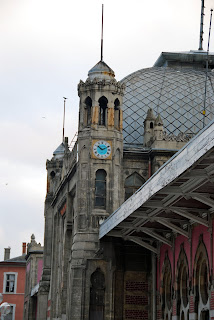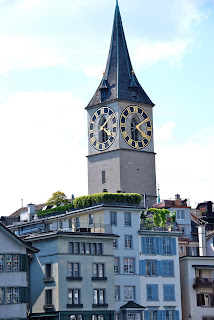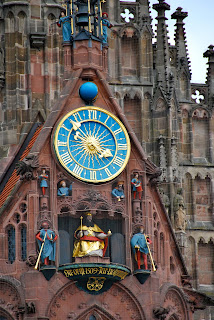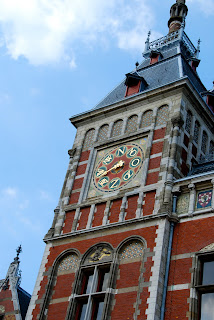One of my friends commented to me that he found it very strange that I was complaining about sitting in hot classrooms at 2 in the morning...which it was for him. For me, it was a very unpleasant 10 am in a stifling room. Yet, we were still communicating. Why he was awake is another story.
I am not having any truly profound or life-changing thoughts at the moment, so don't expect any. Today is Sunday. My finals and the official end of my program are tomorrow. Four weeks ago today I arrived in The Hague to start this part of the adventure. Four weeks is not very long...and in some ways, the time flew by. Yet, when I try to remember some of the things I "learned" in that first week, I come up with a disconcerting blank. Professor Nanda left us only 2 weeks ago...yet it feels like such a long time since I heard his reassuring and entertaining laugh. Reading over notes from his class, I hear his voice - and I wonder if the cadence of human rights will always have his tones from now on.
Why do we keep track of time? Outside of the US - the capitalist obsession with time is generally lessened. People care a bit less here and so so much less in Central America and many Arab countries. Also, this visit has proven that both my mind and body seem to care a lot more about the light outside than what "time" it actually is...when it doesn't approach dark until after 10pm, there simply is no going to sleep anytime before 11:30. I am thoroughly convinced that bedtime is a few hours after it gets dark - definitely not before then.
Yet of course, we humans have anyways been interested in knowing and controlling time. Here are some of the more lovely, or at least interesting, examples -
Train station in Istanbul:

Along the walk to Lake Zurich:

In a Nuremberg Square:

Also in Nuremberg, an older version:

In Bamberg, Germany:
 The most important clock in Berlin - the one telling me when to get back on the metro:
The most important clock in Berlin - the one telling me when to get back on the metro:
I know it's a clock - but I can't figure out what it's trying to tell me about (in Amsterdam):

On the Peace Palace in The Hague - perhaps counting something more important than minutes:

Something simple from Brussels:
 Inside Notre-Dame of Strasbourg:
Inside Notre-Dame of Strasbourg:
And one more, from Colmar, France:
 That may be it for my brief study in time...perhaps in clocks. I wonder if there is a better way to track time. In faces, perhaps...in things that are here and those that are missing. As always, I find it far more to tend towards the philosophical...but I really need to get back to the practical. Anyone want to help me study? What are some differences between the ICC, ICTY and ICTR? How about what rights does the European Convention on Human Rights protect? How can you enforce those rights? How do we understand what is cruel and unusual punishment? How does Scalia justify differentiating "treatment" of detained individuals from "punishment"? I suppose that one leads to a slightly philosophical train of thought...but guess what? I don't need to know that one! HA!
That may be it for my brief study in time...perhaps in clocks. I wonder if there is a better way to track time. In faces, perhaps...in things that are here and those that are missing. As always, I find it far more to tend towards the philosophical...but I really need to get back to the practical. Anyone want to help me study? What are some differences between the ICC, ICTY and ICTR? How about what rights does the European Convention on Human Rights protect? How can you enforce those rights? How do we understand what is cruel and unusual punishment? How does Scalia justify differentiating "treatment" of detained individuals from "punishment"? I suppose that one leads to a slightly philosophical train of thought...but guess what? I don't need to know that one! HA!Miss you all...
Julie: I loved your time/clock photo-word musing thingy. Especially your caption for the clock at The Hague Peace Palace and all the photos.
ReplyDeleteMy view of time has certainly evolved--in my 20's it seemed un-limiting and yet something I wanted to speed-up in a sense--I wanted true adulthood to finally arrive. At 60-something I feel time differently--things that happened 20 years ago seem more like last year. And adulthood is beginning to appear. Also, I am just peeking at the end of my time (not imminent, I trust)as something natural and not so scary. Time is very very different when I'm engaged, in-the-flow: it is a fluffy white cloud in a jet stream--silent and quick. When I'm bored, unfocused; then time hobbles like an arthritic snail on crutches having a bad day.
Julie: Thanks for your reflections on your journey. Su Padre.